Many Canadians have been opting for laser vision correction to eliminate a dependence on their eyeglasses or contact lenses. And like the majority of medical procedures, laser vision correction will provide benefits, while posing some risks. Mostly, it’s a procedure to correct “refractive” vision issues like hyperopia (far-sighted); myopia (near-sighted); and astigmatism (distorted vision). But recently, its been used to correct presbyopia (unable to focus on nearby objects).
With recent advances in technology, a number of different options have emerged for laser vision correction. Optometrist in Vaughan, Dr. Brian Abrams, assesses patients to determine whether they would be good candidates for the procedure. He then discusses the process, and explains the pros and cons of the various vision correction methods available to day. He is knowledgeable and experienced to provide his professional opinion on which approach would be most suited, with best results.
When a patient is ready to proceed, Dr. Abrams can arrange a referral to an appropriate surgeon, and provide both pre-operative and post-operative exams. As it is, laser vision correction can be very effective, and Dr. Abrams makes certain that his patients understand the ramifications, and are able to make well-informed decisions. There are several “brand-name” lasers and associated procedures, so it becomes important to appreciate the full scope of the surgical procedure.
Without getting overly technical, laser vision correction entails a computer guided laser beam that reshapes the cornea to correct vision. Clearly, there are a number of technologies, each one unique, but each requiring a healing period. And needless to say, these are procedures that are performed by highly trained professionals. For the most part, outcomes are quite successful, with patients reducing or eliminating their need for prescription glasses or contact lenses.
There are also risks and complications that potential candidates should be aware, and of course, some patients may have specific family history or previous conditions that may be problematic.
- some pain is experienced (moderate to severe) immediately after surgery
- some hazy vision during healing, which usually clears after the first week
- regression – causing the eye to relapse to previous “refractive” problems
- dry eyes (from quite mild to more serious) may affect the quality of vision
- poorer quality of night vision which may affect the ability to drive at night
There are advantages to being pre-screened for laser vision correction, and Dr. Abrams provides that comprehensive screening. For one thing, personal medical condition and family history may have a bearing on the procedure. As well, pre-existing eye diseases or conditions may play a part in proceeding (or not) with the surgery. Even career occupations may be a deciding factor – some jobs have very specific vision requirements that can be accomplished with vision correction.
Finally, it’s important for patients to have realistic expectations of outcomes. Human eyes change with age, and there still may be a need for prescription eyeglasses or contacts some time in the future. In some cases, there may even be a need for additional surgery, in the event that the initial vision correction was inadequate. And not to forget, most health insurance coverage does not include laser vision correction.


